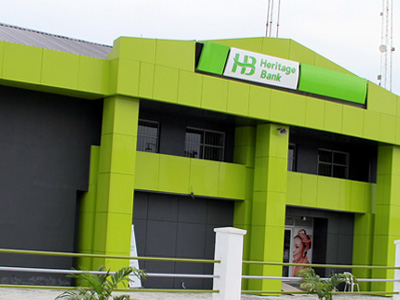
The board of Zenith Bank, on Thursday presented its 2018Q1 earnings score-card, the high point of which was the 25.55% rise profit after tax to N47.079bn, despite the 62.71% growth in operating expenses.
Growth was enhanced by the 35.83% improvement in net interest income, just as the management reined in on interest and similar expenses, while impairment charge for credit loss within the period was significantly reduced by 42%. This represented Earnings Per Share of N1.50, up from N1.19 in the prior Q1.
The result showed that 2018Q1 gross earnings increased by 14.52% from N147.736bn to N169.192bn; out of which N149.317bn or 88.25% came from Nigeria; with interest and similar income remaining the golden egg at N142.618bn, which was 20.77% better than the N118.092bn reported in 2017Q1. The biggest growth came from the N50.854bn interest income from treasury bills, compared to N26.927bn; while customer loans and advances fetched N77.084bn, from N78.809bn.
Interest and similar expenses for 2018Q1 rose from N46.72bn in 2017; resulting in net interest income of N95.989bn, a 35.83% growth from N70.604bn in 2017. Expenses incurred on borrowed funds dropped from N32.848bn to N26.6bn; while time deposits increased to N12.366bn from N8.659bn; with that on savings accounts remaining flat at N4.779bn from N4.189bn. Zenith Bank also incurred N2.975bn expenses on current accounts, from N1.792bn.
Impairment Charge
Impairment charge for 2018Q1 credit loss dropped from N7.886bn in 2017Q1 to N4.573bn, most of which was overdrafts (N4.147bn, from N7.61bn); resulting in net interest income after impairment charge for credit loss of N91.325bn, up from N62.718bn, representing a 45.61% increase. Fee and commission income dropped slightly by 1.38% to N20.837bn from N21.128bn, with current account maintenance fees at N4.962bn, as against the N9.571bn in 2017; credit related fees climbed to N4.62bn from N3.218bn; and fees on electronic products from N1.424bn to N3.518bn; among others.
Trading income fell by 75.76% from N7.064bn to N1.712bn, mostly from foreign exchange trading income drop from N7.03bn to N1.016bn; other operating income climbed 177.2% up from N1.452bn in 2017, to N4.025bn. This was buoyed by the foreign currency revaluation gain of N3.465bn from N1.324bn; amortization of intangible assets rose 86.52% to N526m from N282m; just as depreciation of property and equipment rose to N3.889bn from N2.723bn.
AMCON and NDIC
Personnel expenses dropped by 14.31% to N15.5 66bn in 2017, to N18.166bn; operating expenses jumped from N43.917bn from N26.991bn, driven by the N12.084bn paid to the Asset Management Corporation of Nigeria (AMCON), up from N5.355bn; followed by fuel and maintenance cost of N5.854bn, which was flat, compared to the previous N5.561bn; and N2.722bn paid to the Nigeria Deposit Insurance Corporation (NDIC), from N2.7bn.
Profit before tax stood at N54bn from N44.2bn, a 22.17% growth. Income tax grew marginally from N6.7bn to N6.922bn; leaving net profit at N47.079bn, as against N37.499bn in the corresponding first quarter of 2017, of which Nigeria contributed N42.87bn. Total comprehensive income for the period increased to N51.861bn, better than the previous N38.965bn by about N12.896bn or 33.09%, helped by the growth in foreign currency translation differences from N509m to N3.532bn; and fair value movements on equity instruments at N1.25bn from N957m.
Balance Sheet
Total asset for 2018Q1 improved by 19.75% to N5.675tr, from N4.739tr, with the bank becoming more conservative as customer loans and advances dropped to N1.757tr from N2.349tr. Investment in treasury bills amounted to N986.571bn from N646.387bn; while cash and balances with central banks grew from N604.419bn in 2017Q1 to N940.981bn.
Total liabilities dropped 21.93% from N4.051tr in 2017 to N4.94tr, boosted by customer deposits, which increased by N399.92bn or 13.34% at N3.396tr from N2.996tr. Shareholders’ fund for the period stood at N735.246bn from N687.858bn.












